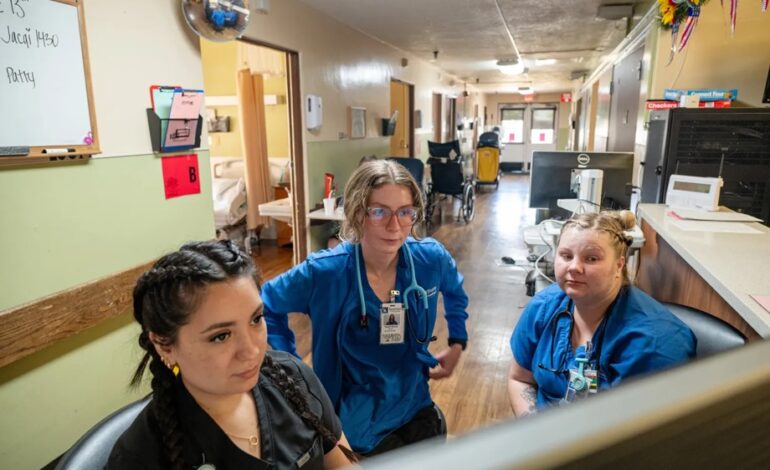California Lawmakers Push for Reopening of Glenn County Hospital

The closure of Glenn Medical Center, the only hospital in Glenn County, has prompted two California lawmakers to propose legislation aimed at restoring the facility’s operational status. Democratic Senator Adam Schiff and Republican Representative Doug LaMalfa have introduced separate bills to reinstate the hospital’s “critical access” designation, which is essential for its financial viability.
Glenn Medical Center, a 25-bed facility located in Willows, California, has served the community for decades. However, it was forced to shut down on September 30, 2023, following a determination by the U.S. Centers for Medicare and Medicaid Services (CMS) that it no longer met a federal distance requirement. The hospital is less than the mandated 35-mile distance from the nearest facility, Colusa Medical Center, which is situated approximately 32 miles away. Efforts to appeal this decision were unsuccessful, leading to the hospital’s closure and leaving thousands of residents without immediate access to emergency care.
With the loss of critical access status, Glenn Medical Center faced unsustainable operational challenges. Hospital administrators reported that once staff were informed of the closure, many began seeking employment elsewhere. As a result, reviving the hospital will not only require legislative changes but also substantial financial resources. Matthew Beehler, spokesperson for American Advanced Management, which owns the hospital, indicated that reopening could cost tens of millions of dollars.
Legislative Efforts to Restore Critical Access Status
Senator Schiff has partnered with Senator Cindy Hyde-Smith of Mississippi to propose amendments to the Medicare Rural Hospital Flexibility Program. Their legislation aims to allow hospitals designated as critical access as of January 1, 2024 to retain their status. In his statement, Schiff emphasized the potentially devastating impact of the hospital’s closure, stating, “The resulting closure of this hospital or others like it, is devastating and potentially deadly for California families.”
In a parallel effort, Congressman LaMalfa introduced the Rural Hospital Fairness Act, which would permit hospitals that serve as the only emergency providers in their counties to maintain eligibility for the critical access program. LaMalfa highlighted that CMS had initially indicated that Glenn Medical’s status would be restored, only to reverse that decision without legislative action. “It’s the people of Glenn County who are being punished for it,” LaMalfa stated, expressing dissatisfaction with the agency’s handling of the situation.
Emergency Care Challenges and Financial Implications
Since the closure of Glenn Medical Center, residents of Glenn County, which has a population of approximately 28,000, now face longer travel times for emergency services. The hospital has redirected patients to three nearby facilities: Colusa Medical Center, which is a 35-minute drive; Enloe Medical Center in Chico, roughly 45 minutes away; and St. Elizabeth Community Hospital in Red Bluff, also about 45 minutes away.
The extended travel times pose significant risks, especially for critical emergencies. Glenn County operates only two ambulances, and the longer distances reduce their responsiveness to urgent medical needs. Beehler noted that when Glenn Medical Center closed, it temporarily suspended its state license rather than terminating it, which could streamline the reopening process.
Despite the introduction of legislation, Beehler acknowledged that reinstating the hospital’s critical access status alone would not be sufficient for immediate reopening. He emphasized the need for a substantial influx of funds to cover operational costs until reimbursements from insurers and public payers are received. The reopening of hospitals often requires months of financial support to attract and retain qualified medical staff, many of whom may have sought other job opportunities during the closure.
Efforts to secure funding are ongoing, and the California Health Care Foundation is backing initiatives to ensure access to affordable healthcare in underserved areas. According to Beehler, “Legislation is step one. The next challenge is finding a source of funding directed to reopening efforts.”
The situation in Glenn County underscores the broader challenges faced by rural hospitals across the United States, where financial viability is increasingly jeopardized by stringent federal regulations. As lawmakers work to navigate this complex issue, the future of Glenn Medical Center remains uncertain, but hope for its revival is alive as community members and officials advocate for better access to essential healthcare services.






